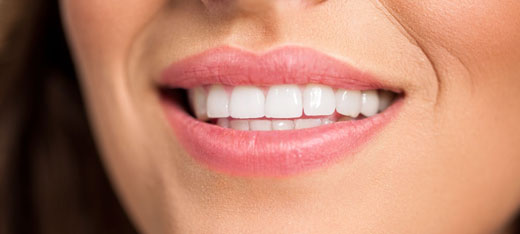How to have white teeth without risk?

To have white teeth, there are several steps and practices you can follow.
Keep in mind that the effectiveness of these methods may vary from person to person, and it is best to consult a dental health professional for advice specific to your situation.
Here are some general tips for having whiter teeth:
-
Regular brushing: Brush your teeth at least twice a day for two minutes each time. Use a soft toothbrush suitable for whiteningt to avoid damaging tooth enamel.
-
Use a whitening toothpaste: Choose a toothpaste designed to whiten teeth. It can also help remove surface stains.
-
Flossing: Floss every day to remove plaque between your teeth and around your gums. Good oral hygiene is essential to keep your teeth white.
-
Avoid foods and drinks that stain: Reduce your consumption of coffee, tea, red wine, soda, tobacco and certain foods rich in dyes that can stain your teeth.
-
Antiseptic mouth rinses: Use an antiseptic mouthwash to help kill bacteria from bad breath and gum problems. Some mouth rinses also contain whitening agents.
-
Dentist Visit: Visit your dentist for regular dental cleanings. They can remove stains and accumulated plaque.
-
Teeth Whitening Kits: Consult your dentist before using over-the-counter teeth whitening kits. They are very ineffective and can cause irreversible damage to your gums and enamel.
-
Professional teeth whitening: If you are looking for faster and more effective results, consider professional teeth whitening at your dentist. There are several methods, including bleaching with hydrogen peroxide or carbamide peroxide.
-
Maintain a healthy lifestyle: Avoid smoking, limit alcohol consumption and eat a balanced diet. Good general health can also contribute to whiter teeth.
-
Hydration: Drink water regularly to help remove food particles and prevent staining.
It is important to note that natural tooth color varies from person to person, not everyone can have reconstructed white teeth like those of celebrities who do not 'never exist naturally.
However, by following these tips, you can improve the whiteness of your teeth and maintain good oral health.
Remember to consult your dentist for personalized advice and recommendations tailored to your situation.
Recent articles
- What is tooth decay?
- Baby toothbrush
- Baby bottle tooth decay
- Have White Teeth Naturally
- Why oral hygiene?
- Gingivitis, sore gums
Categories
- Ampheris
- ampheris Silver Care
- antibacterien
- athletisme
- avoir-des-dents-blanches
- bactérie
- bacteries
- bacteries-dentaires
- bonne haleine
- brossage des dents
- brosse a dents
- brosse a dents enfant
- brosse a dents ionique
- brosse a dents manuelle
- brosse a dents silver care
- brosse-a-dents-bebe
- carie dentaire
- carie-du-biberon
- choisir une brosse à dents enfant
- comment se brosser les dents
- comment-avoir-des-dents-blanches
- comment-nettoyer-sa-prothese-dentaire
- contamination
- couleur tube de dentifrice
- covid 19
- dentifrice
- dentifrice dangereux
- dents dechaussees
- dents-blanches
- detartrage
- effet ionique
- escalade
- foot-ball
- gencive
- gencive qui saigne
- gencives qui saignent
- gingivite
- histoire-du-dentifrice
- hygiene
- hygiène dentaire
- importance-de-l-hygiene-dentaire
- invention de la brosse a dents
- le-sport-et-la-brosse-a-dents
- mauvaise haleine
- nettoyer-sa-prothese-dentaire
- parachutisme
- plaque dentaire
- plaque-dentaire
- postillons
- quelle est la meilleure brosse a dents
- qui a invente la brosse a dents
- salive
- santé buccodentaire
- sante-bucco-dentaire
- sante-buccodentaire
- silver care
- soins-dentaires
- tartre dentaire
- tartre-dentaire
- tête brosse a dents
- tete de brosse a dents

